KM3NeT/ORCA detector coming on-line
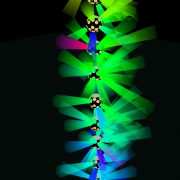 First detection unit of the KM3NeT/ORCA neutrino detector online
First detection unit of the KM3NeT/ORCA neutrino detector online
Last week, an extensive sea operation took place to deploy several elements of the KM3NeT/ORCA detector at the KM3NeT-Fr site, about 40 km offshore from Toulon. Amongst them, the first detection unit of ORCA comprising 18 optical modules, spaced at 9 m along a 200 m high vertical neutrino detection line. The deployment and connection of the detection unit was performed with the aid of a surface vessel and a Remotely Operated Vehicle (ROV) operated from a second boat.
The detection unit, wound around its spherical launching frame, was carefully lowered to the seafloor 2437 m below. Thanks to a state-of-the-art acoustic positioning system, the package was deployed within two metres of its designated position. Read more

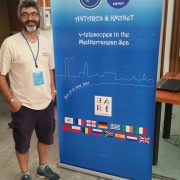
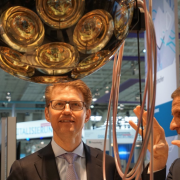
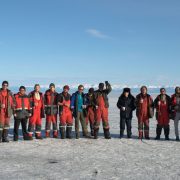
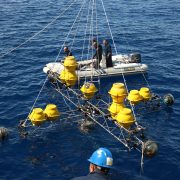
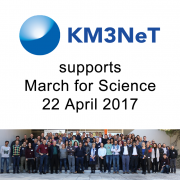 On 22 April 2017 scientists, concerned citizens and science lovers will march to celebrate science and to stress the need for support and safeguarding of the global scientific community.
On 22 April 2017 scientists, concerned citizens and science lovers will march to celebrate science and to stress the need for support and safeguarding of the global scientific community. 17 March 2017 – The KM3NeT Collaboration congratulates
17 March 2017 – The KM3NeT Collaboration congratulates 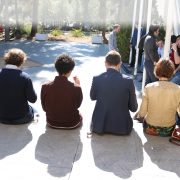
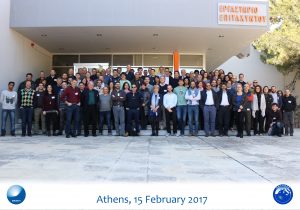
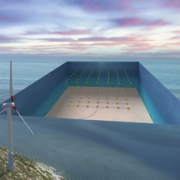
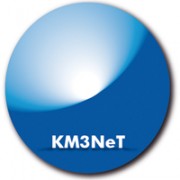 14 December 2016 – In the context of its H2020 program, the European Committee approved a project to establish within three years the KM3NeT Research Infrastructure as a legal and sustainable entity.
14 December 2016 – In the context of its H2020 program, the European Committee approved a project to establish within three years the KM3NeT Research Infrastructure as a legal and sustainable entity.